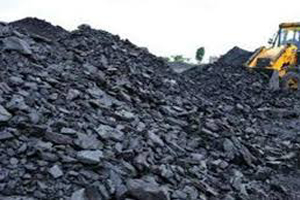
Power plants in Pakistan and Indonesian coal
The blanket ban, introduced on Jan. 1, runs through the end of the month has been partially lifted much earlier. Ban was imposed to prioritize domestic supplies due to low inventories at state-owned utility Perusahaan Listrik Negara (PLN). Japan, South Korea and the Philippines, which rely on Indonesian coal to generate electricity, had called on Jakarta to drop the export ban earlier this month. The world's biggest thermal coal exporter on Jan 13 decided that 14 loaded vessels could depart. The latest measure means 23 more were approved. Pakistan is also consumer of Indonesian coal for power generation had imported 1.708 and 1.842 million metric tons in 2020 & 2021 respectively.
|
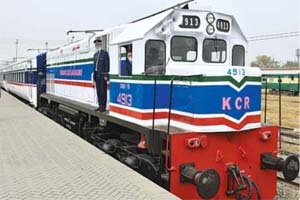
Rs 220bn Karachi Circular Railway transaction structure approved
The government had approved the transaction structure and project proposal for the construction and operation of Karachi Circular Railway (KCR) on public-private mode at an estimated cost of about Rs220bn. Under the transaction structure approved by the board of Public-Private Partnership Authority (P3A), the private sector will finance, develop and run the project on commercial lines. The sources said the transaction structure proposed by the consultants/transaction advisers envisaged about Rs533bn government subsidy over the 33-year project life for electricity and major operation and maintenance (O&M) costs which was rejected by the board. The project cost was initially estimated at about Rs201bn excluding Rs20.7bn worth of loop section to avoid 22 crossings already under implementation. It was decided that a revised umbrella PC-1 be submitted to the Central Development Working Party (CDWP) with firmed-up cost estimates. The board also decided that based on revised cost estimates, the federal government would finance 40pc that would work out at about Rs80-90bn and provide this financing to the concessionaire at the outset (first three years) to help operationalise the project. On the issue of 40pc (Rs80-90bn) government cost-sharing, the P3A board decided that the railway board would be asked to lease out for 99 years 13 properties en route the KCR project to meet the initial financing since the profit would ultimately flow to Pakistan Railways (PR). Alternatively, in case of PR board’s disagreement, the federal government would provide the funding out of Public Sector Development Programme (PSDP) but then the return on that funding would be directed to the federal government instead of PR. The project with its transaction structure approved by the P3A board would now be taken to the market after formal ratification of the transaction structure by the Executive Committee of the National Economic Council.
|

PNS Tughril, 10 Sea King helicopters inducted into Navy
Pakistan Navy inducted PNS Tughril, the first of four Type 054-A/P multi-role frigates, and 10 Sea King helicopters at the Pakistan Navy Dockyard on Monday Jan 24th. A contract for the four multi-role frigates (Type 054-A/P) for PN was signed between Pakistan and China in June 2018. PNS Tughril, the lead ship of Type 054-A/P, has been inducted into the PN fleet along with Sea King helicopters. Speaking on the occasion, Admiral Niazi underlined that the induction of PNS Tughril and Sea King helicopters would augment the force in its combating capabilities in safeguarding the territorial integrity and the maritime interests of Pakistan. He also elaborated the PN’s role in promoting peace and stability in the region through various maritime initiatives. President Alvi commended the induction of state-of-the-art ship and helicopters in the PN fleet. He expressed satisfaction and confidence that the potent and highly capable fleet and its air arm would continue promoting peace and stability in line with the government’s policy while devotedly guarding national maritime frontiers. Later, he handed over the traditional ship’s scroll and aircraft documents to the commander of Pakistan Fleet.
|
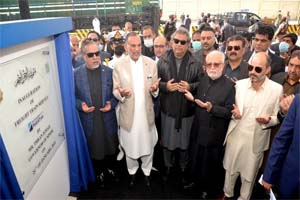
Freight train service launched to link Karachi port with rest of Pakistan
The huge and powerful dark green locomotive attached to a long line of big and small freight containers awaited the inauguration ceremony to be off on its way at the Hutchison Ports Pakistan, also known as the South Asia Pakistan Terminal, on Jan 24th. Then as soon as the ribbon was cut, it honked loudly while making the slouching guests sit up straight in their chairs as it chugged away on its new ballastless tracks. Expected to take away the traffic congestion caused by container trucks on roads and highways here, this freight train will reach its destination, Lahore, in up to four days. The freight train service also coincides with the commissioning of a 3.7km, high-tech train track laid at the Hutchison Ports Pakistan connecting the facility to the rest of the country in a seamless manner through Pakistan Railway’s extensive network spread throughout the country. This new track laid within the terminal comprised three rail sidings of 700 meters each alongside a crippled wagon sliding. The tracks are embedded in concrete and are ballastless, which is a better, albeit a more expensive option than the traditional sleeper/ballast design used in Pakistan. Switching between the tracks and signalling is carried out using a computer-based interlocking system, eliminating the need for manual switching. As many as three freight trains can be handled simultaneously using rubber-tyred gantry cranes with a quick turnaround. Another track can also be added.
|
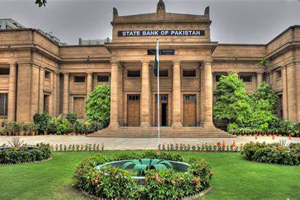
SBP keeps policy rate unchanged at 9.75pc
The State Bank of Pakistan (SBP) has kept its benchmark interest rate unchanged at 9.75 per cent in its latest monetary policy and signalled that borrowing costs would remain steady for now, as recent tax increases were expected to curb demand and reduce the country’s budget deficit. “There’s no need for further tightening at the moment because of the government’s fiscal policy,” SBP Governor told a news conference on Jan 24. He said economic indicators were within the target, which allowed the central bank to keep the interest rate unchanged at 9.75pc. In its previous monetary policy announced last month, the SBP increased the policy rate by 100 basis points from 8.75pc and revised targets for inflation, current account deficit and growth rate and changed the perception about the rising import bill. Since September, the central bank has lifted the rate by 275 basis points to tackle a falling rupee, high inflation and a current account deficit. It indicated last month that it expected the monetary policy setting to remain “broadly unchanged” in the near term.
|
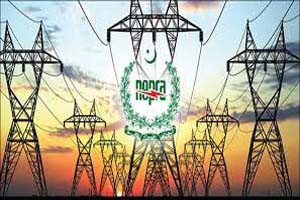
Nepra clears phasing out of Rs20bn power subsidies
The National Electric Power Regulatory Authority (Nepra) cleared the government’s Rs20 billion subsidy reduction plan through increase in uniform national electricity rates by up to 95 paisa per unit with effect from Feb 1, saying it was just a post office in the matter. “Our role is more like a postman,” summarised Nepra chairman while presiding over a public hearing on a tariff petition of the Power Division seeking implementation of ‘Subsidy Reform Plan — Phase II’ by gradually increasing tariff for residential consumers. He said Nepra had already determined a fair basket rate of about Rs18.75 per unit and it was purely a political decision of the government as to how it sets an effective rate for various consumer categories through budget subsidy, cross-subsidy among consumers and companies and so on. Responding to various observations and questions during the hearing, the Nepra chief said it did not have any mandate to change the 8 to 95 paisa per unit increase in tariff decided by the government. He said the public hearing was conducted under a directive of the court which had a few years ago directed the federal government to go back to Nepra for notification once it decides the ratios of subsidy based on the average uniform tariff determined by Nepra. Therefore, this is just a formality, the regulator had already settled the average rate and now the government was reducing subsidy. He, however, conceded that there were a number of taxes, duties and surcharges over and above the Nepra-determined tariff which significantly increased the overall consumer bills. He said the minimum tax on domestic consumers stood at 21pc and went up to 47pc. He said he had taken up the matter with the finance minister that Nepra was not a revenue collection agency but attracted severe public criticism for such charges which need to be rationalized.
|

Automakers pass on impact of FED hike to buyers
Indus Motor Company (IMC) and Honda Atlas Cars Ltd (HACL) have jacked up prices by Rs63,000-493,000 following an increase in Federal Excise Duty (FED) after the passage of Finance (Supplementary) Bill 2021 commonly known as mini-budget. Pak Suzuki Motor Company Ltd (PSMCL) was the first to push up prices by Rs29,000-150,000. Industry executives did not give a clear picture of the immediate impact of price hikes on the car sales. SUVs and jeeps as many companies had been holding advance booking orders of vehicles in hand as of last quarter of 2021 whose delivery time is the first or second quarter of 2022. Consumers had witnessed a price drop of Rs62,000-400,000 following duties and taxes cut in budget FY22. However, the assemblers had started increasing prices with higher intensity since November 2021 by up to Rs100,000-590,000 in the wake of surging freight charges, massive rupee devaluation and logistics issues. Despite price hikes, rising interest rates and curbs on auto financing, the IHFY22 ended with a 71.2pc rise in car sales followed by 66pc in jeeps and 63pc in light commercial vehicles.
|
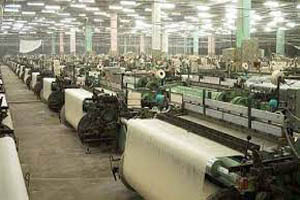
Large-scale manufacturing grows 0.3pc in November
Large-scale manufacturing (LSM) posted paltry growth of 0.30 per cent in November on a year-on-year basis, data released by the Pakistan Bureau of Statistics (PBS) showed. The LSM recorded negative growth of 1.19pc in October. The slight improvement shows a revival in large industries. The PBS has rebased the index for the manufacturing sector to 2016-17, but the estimation for November was still made on the old base of 2005-06. The lowest positive growth in the LSM was witnessed in September 2021 at 1.19pc after it clocked in at 12.74pc in August. The second-lowest LSM expansion took place in July at 2.25pc. On a month-on-month basis, big industry production increased 1.91pc. In the first five months (July-November) of the current fiscal year, the LSM grew 3.26pc on a year-on-year basis. During the previous fiscal year, the LSM showed the highest growth of 14.85pc. The government claimed at the time that the slump in industrial production had come to an end. Since July 2020, the LSM has rebounded after months-long downturn on account of Covid-19, mainly in the automobile, construction, textile, food, chemical, non-metallic mineral products and pharmaceutical sectors. The PBS snapshot of manufacturing activity showed that seven of the 15 sub-sectors in the LSM dipped in November. High interest rates and depreciation of the rupee will increase the cost of raw materials further as economic activity is expected to slow down in the current fiscal year.
|
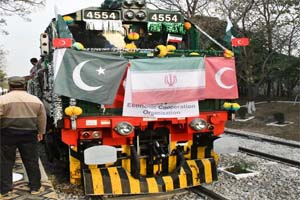
Third train to Turkey via Iran on 23.01.22
The third Islamabad-Istanbul freight train left for Turkey on Jan 23, as the second one carrying goods weighing 525 tonnes has arrived in Istanbul via Iran. The booking for goods transportation Pakistan by this service has also started in Turkey. “The second train has arrived in Istanbul a few days ago after it started its journey from Pakistan on Dec 28. The goods loaded in the train were mostly the soapstone that was transported to Turkey,” an official source in the Pakistan Railways told. After being dispatched on Dec 21 with goods including pink stone, the first train had reached Ankara via Lahore, Taftan and Zahedan on Jan 3, completing its 17-day journey in 13 days. Under an arrangement, before reaching its destination, the goods loaded onto the train were shifted to other bogies (trans-shipment) compatible with the Iranian and Turkish rail/gauge system.
|
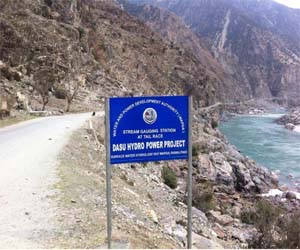
Work on Dasu dam site back on track
Chinese Foreign Ministry Spokesperson Zhao Lijian brushed away media reports that suggest the Chinese contractor has demobilised from the Dasu dam project site. At his regular briefing at International Press Centre (IPC) on Jan 20, Mr. Zhao said he was unaware of any preconditions put forward by the contractor for resuming work on the dam site. “I’m not aware of the situation you mentioned. As far as I know, the Dasu hydropower project has resumed,” he said. He said the China-Pakistan Economic Corridor (CPEC) was moving forward against a headwind posed by the pandemic. He rejected the reports that indicate the work on CPEC, a pilot project of the Belt and Road Initiative (BRI), had slowed down over the past three and a half years. Mr. Zhao said CPEC followed the principles of joint consultation and contribution for shared benefits. “Recently, we have seen the president of Pakistan, Dr. Arif Alvi, Prime Minister Imran Khan and some media’s positive comments on the progress made in the CPEC flagship project,” he said. About the railway project, the spokesperson pointed out that it involved a huge investment and the authorities concerned were in consultation over it. He said the claim that little has been achieved and no programme was approved over the past three and a half years under CPEC was “pure disinformation”.
|
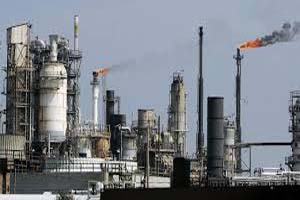
Refineries warn of shutting operations from next month
The country’s oil refineries have warned the government of a looming shutdown of their operations in a couple of weeks due to high and yet rising stocks of furnace oil. Informed sources said the refineries have reported to the government that the oil industry was currently holding about 400,000 tonnes of furnace oil. In addition, 300,000-tonne stocks were lying unutilised at various power plants. On the other hand, the Power Division had placed a requirement of furnace oil for February at just 45,000 tonnes for the power sector. The sources said the Petroleum Division had advised the Pak-Arab Refinery (Parco) at Multan to export one cargo of about 50,000 tonnes of furnace oil during the current month. It said the total monthly furnace oil production of the refineries was more than 200,000 tonnes. This is on top of about 700,000 tonnes currently in stocks of refineries, marketing companies and power plants. The refineries have called for an immediate need to address the critical issue of high furnace oil stock levels and low offtake which had negatively affected the ability of the refineries to operate at their full capacity. At least three refineries recently faced shutdowns and others had to go for production cuts due to high furnace oil stocks and they offered discounted prices for better off-take by the power sector. As a result, Cnergyico (formerly Byco) reduced its stocks through discounted price while National Refinery had extended its ongoing shutdown. Parco was operating at 75pc capacity and was in the process of exporting about 50,000 tonnes of the furnace oil through an international tender that may materialise by end of the current month. Despite canal closure, the furnace oil consumption by power plants has not increased and continues to utilise about 5,000 tonnes per day instead of normal consumption of about 12,000-16,000 tonnes during these days. On the other hand, the three RLNG-based power plants in Punjab – Bhikki, Balloki and Haveli Bahadur Shah – were operating at high-speed diesel at the rate of about 5,000-6,000 tonnes per day because of RLNG shortages. Interestingly, the price of HSD is about Rs145 per litre against about Rs85-95 per litre of furnace oil.
|
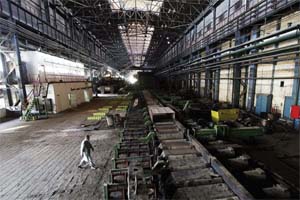
Six investors pre-qualified for PSM revival
The Board of the Privatisation Commission (PC) granted approval for six pre-qualified investors for the revival of Pakistan Steel Mills (PSM). The six parties have submitted their SOQs. A pre-qualification committee was formulated to scrutinise the pre-qualified parties. A press release issued after the board meeting said that the pre-qualified parties were leading international investors of sound rating. “It is welcoming that they expressed interest for the revival of PSM,” the press release said. The board decided that the Virtual Data Room (VDR) will be opened for pre-qualified bidders for their due diligence for a period of thirty days.
|
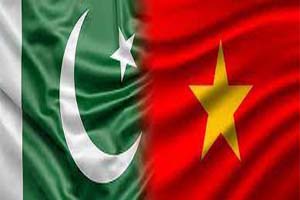
Vietnamese envoy stresses cooperation in rice, textile
As big producers and strong competitors in rice and textiles segments, Vietnam and Pakistan can complement each other to create a win-win mechanism, said Vietnamese Envoy Nguyen Tien Phong. In a meeting with office bearers of Federation of Pakistan Chambers of Commerce and Industry (FPCCI), Phong stressed upon fast tracking the approval of preferential trade agreement (PTA) between the two nations. He also called for implementing it effectively to multiply the trade volumes. “The bilateral trade volume of $600 million per year is insufficient and the two countries possess ample potential to enhance it to $10 billion in the coming years,” he said. He also underscored the need for exchange of business delegations from Islamabad to Hanoi and vice versa. Speaking on the occasion, FPCCI Vice President stated that Vietnam should consider investing in smartphone and semiconductor sectors of Pakistan given that the nation excelled in these two areas. Ambassador Nguyen Tien Phong and Federation of Pakistan Chambers of Commerce and Industry (FPCCI) leadership jointly emphasised upon increased interaction at the government and private sector levels to boost trade.
|
|

© 2022 Alpine Marine Services Private Limited
all rights reserved
|
|
|